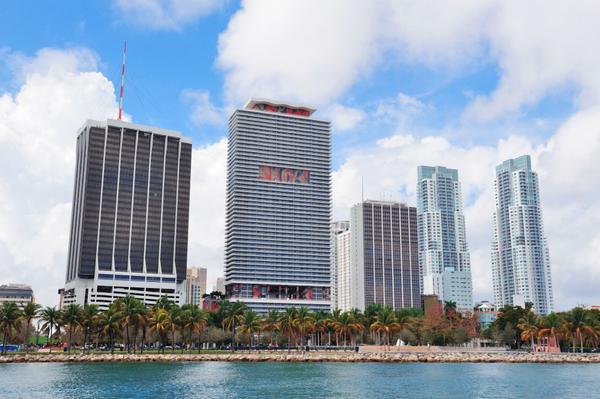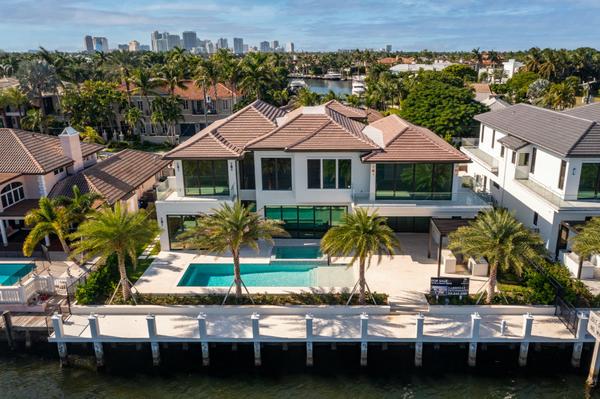Why Your São Paulo Apartment Sale Strategy Won’t Work in Miami: Cultural Differences That Cost Money
If you're a Brazilian seller used to the São Paulo real estate market, you may find that your tried-and-true strategies may not work when it comes to selling in Miami. While both cities have vibrant real estate markets, the selling practices, cultural expectations, and legal requirements are vastly different. Understanding these differences is crucial to ensuring you don’t leave money on the table or face unnecessary delays.
In this blog, we will explore the key differences between selling an apartment in São Paulo and Miami and how understanding these can help you sell your property faster and at a better price.1. Disclosure Requirements: Full Transparency Is Key in Miami
In São Paulo, it’s common to sell a property with little formal disclosure. It’s understood that buyers assume the responsibility of checking for any issues with the property during negotiations. However, this approach will not work in Miami.
In the U.S., including Miami, sellers must provide a full disclosure statement regarding the condition of the property. This includes any known defects, past water damage, electrical issues, and more. Failure to disclose known issues can lead to legal consequences and even rescinding of the contract.
Tip: In Miami, transparency is essential. To avoid any complications, ensure you have a thorough home inspection and provide all relevant details about your property to potential buyers.
2. The Staging Game: Presentation Is Everything
In São Paulo, many properties are sold as-is, often without staging or even cleaning. Buyers may accept a "fixer-upper" and negotiate based on that. However, in Miami, staging is a must, particularly if you want to sell quickly and at the right price.
Miami buyers expect move-in-ready homes, and they appreciate professionally staged properties that showcase how the space can be used. It’s not just about the furniture but the overall atmosphere and flow of the apartment. Well-staged homes often sell faster and for a higher price than homes that are left empty or poorly presented.
Tip: Work with a professional stager to ensure your property appeals to the largest pool of potential buyers.
3. Negotiation Styles: Fast and Binding Offers in Miami
Negotiating in São Paulo may feel more relaxed and lengthy, with room for back-and-forth discussions. However, the process in Miami tends to be faster and more transactional.
- In São Paulo, negotiations can last weeks or even months, especially for high-end properties.
- In Miami, offers are generally binding with clear deadlines. Once an offer is made, the buyer often expects a swift decision from the seller. If you hesitate or prolong the process, you might lose out on offers.
Tip: Understand that buyers in Miami often come prepared with their financing already in place, and they expect sellers to move quickly once an offer is on the table.
4. Inspection Period: No Surprises
One of the major differences between São Paulo and Miami is the inspection period. In Miami, after the buyer makes an offer, there is typically a 10-day inspection period where they can assess the property for any issues. If they find something wrong, they can negotiate repairs or even cancel the deal.
In São Paulo, inspections are less common, and deals often proceed without detailed property assessments unless issues arise during the contract signing.
Tip: Be prepared for negotiations after the inspection. It’s a standard part of the Miami market, and as a seller, you need to factor this into your timeline.
5. Title Insurance: Essential in Miami
In São Paulo, real estate transactions are handled by notaries, and property titles are often clear and well-documented. In contrast, in the U.S., and particularly in Miami, title insurance is essential.
Title insurance protects the buyer against any legal issues related to the property title, such as undisclosed liens or past ownership disputes. This insurance is standard practice in Miami and a must-have for the buyer, but it’s something Brazilian sellers often overlook.
Tip: Ensure that your title is clear and that you work with a title company to provide the necessary insurance to the buyer.
6. The Escrow Process: Third-Party Security
In Miami, earnest money, the deposit made by the buyer to show they are serious, is held in escrow by a neutral third party, often a title or escrow company. The funds are only released when all terms are met, providing protection for both the buyer and seller.
In São Paulo, the process tends to be more direct, with the buyer sending the deposit directly to the seller or through a notary. Escrow accounts are not commonly used in Brazil.
Tip: In Miami, make sure you understand how the escrow process works and work with an experienced escrow agent to ensure a smooth transaction.
7. Closing Time: Miami is Faster
The closing process in Miami is much quicker than in São Paulo. Typically, closings in Miami take 30-45 days from the accepted offer to the actual transfer of ownership. In São Paulo, the process can take months due to additional steps like paying the ITBI tax and registering the sale at the notary.
Tip: In Miami, the process is fast-paced. Make sure you’re prepared with all necessary documents and deadlines to avoid delays.
Conclusion: Understanding the Miami Real Estate Market
Selling a property in Miami requires adapting to a fast-paced, transparent, and well-regulated process. Understanding the differences in disclosure laws, negotiation styles, and the closing process will help you navigate the sale more effectively and avoid unnecessary delays or mistakes.
If you’re a Brazilian seller unfamiliar with the U.S. real estate practices, working with an experienced real estate agent is essential. I can help you prepare your property, guide you through the process, and ensure a smooth, successful sale.
📩 Want to learn more about selling your property in Miami? Contact me, Isaac De Castro, for expert advice and personalized support in the Miami market.
Categories
Recent Posts










GET MORE INFORMATION


